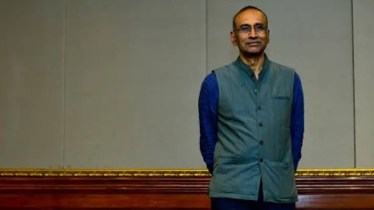As scientific advances grow, the quest for immortality gets stronger. But should we defy nature, and does death serve a necessary purpose too? What are the lines to draw when it comes to the ethics of defying aging? Venki Ramakrishnan, who won the 2009 Nobel Prize in chemistry for uncovering the structure of the ribosome, attempts some answers in an interview about his new book, Why We Die. Edited excerpts:
Is immortality even possible?
I doubt there is such a thing as ‘true’ immortality. Even if scientists were successful in slowing or even reversing aging, those interventions would not be perfect, and gradually the accumulation of damage would prevail. I also don’t see how this is going to work for aging of the brain, which is a particularly difficult problem. This is, of course, ignoring other causes of death such as disease, starvation, climate change, wars, etc.
What is the view of the scientific community that we should age gracefully and accept senescence?
I do think that science can play a role in ameliorating some of the debilitating consequences of old age. However, I think we need to accept that radical life extension is very difficult and unlikely in the foreseeable future. The science community is mixed about this.
Between the debate of anti-mortality and anti-morbidity—both of which have unwanted consequences, as you write in your book—which one would you pick if you had to choose, and why?
It is not as if these two groups are in strict opposition. Everyone wants progress with anti-morbidity. However, there are some who feel that postponing mortality, even for a long time, is possible. While that may be theoretically true, I don’t think it is feasible in the foreseeable future.
You write that there are more than 700 startups in the anti-aging business in the past decade, with billions of dollars being invested. Would you say that challenging aging is more commercially driven and cosmetic than scientific and biological—both in terms of pursuit and need?
I think it is mixed. A lot of support for aging research comes from governments who are faced with societies in which the proportion of people over 60 is increasing steadily, and combined with a low fertility rate is resulting in a population distribution that is becoming more skewed towards older age groups. So it is important for societies to find ways to ensure that older people remain healthy, independent and preferably productive.
You dwell extensively on the ethics of anti-ageing. Do you feel it is unethical to begin with—right from defying nature to dubious remedies—or do just the societal inequalities that it will breed bother you?
If by defying nature, you mean human interventions into natural processes, we have been doing that ever since we discovered tools and fire, not to speak of modern medicine. However, I think pushing dubious remedies for which there is little or no evidence is unethical, but this too has been going on throughout our history. Societal inequalities are also a real problem, and new technologies can sometimes increase inequalities.
Given the increasingly polluted environment we live in and the stressed lives we lead, isn’t the quest for anti-mortality ironical, given that disease—and its increasing possibility as a consequence of our environment—defeats the quest in entirety?
You could question priorities, and how much money should be allocated to different areas given finite resources, but again, there is no reason why progress with healthy aging is inconsistent with other goals.
As a biologist, how much credit would you give genetics in longevity, and how much to environment and lifestyle, in percentage terms?
There is no straightforward answer to this. A study of Danish twins suggested a heritability in longevity of about 25%. However, in worms, mutations in single genes have extended lifespan by a factor of 2, although these mutations have other consequences and are not selected for in the wild because they are detrimental earlier in life.
Would you choose immortality if it became possible?
If you asked me today, I would say that a life without end could be rather boring, and I would not want it. On the other hand, there is the old joke about who would ever want to live to be a 100, and the answer is someone who is 99. Most of us have an instinctive will to live.
